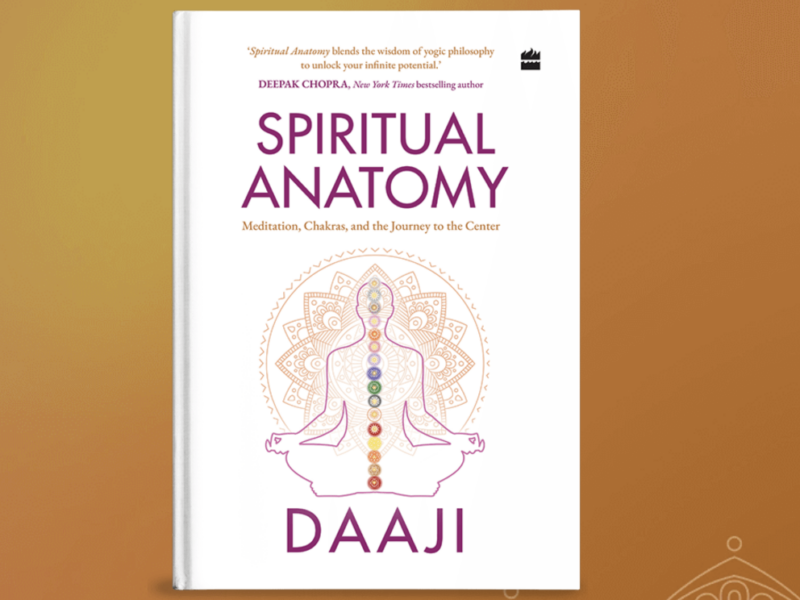Elena Brower explains the action steps that have helped her take her spiritual practice to the next level.
Yoga teachings emphasize clear vision and action, which points to my favorite definition of spirituality: clarity, connection, trust and flow.
In yoga practice, we see thoughts as energy, as capacities, and even as movement within the body just like the structural forms achieved in asana. We remind ourselves that we may choose and manage our thoughts, and thereby direct our energy where we want it to go. We practice being more grounded, both in our postures and in our intentions. Oftentimes, our practice does lead to more clarity in our relationships with family, friends, lovers, or work colleagues, and in our actions in the world. Sometimes, though, the practice leaves us with glimpses of how we can be, and a mighty chasm between that ideal and the frustratingly destructive behaviors we’ve always known.
That said, for me, despite 18 years of practicing yoga and cultivating a spiritual life, there were unresolved, unmanageable old hurts that felt amplified after practicing yoga. Memories of childhood pain, whether in my family, school or in relationships as I got older, were excavated through the physical release of my practice, and the most hidden hurt determined how I destructively handled conflict of any kind. I was frustrated, because the practice wasn’t helping me manage my actions.
While yogic philosophy offers so many tools for transforming ourselves and helping heal in the world, in my experience, an actual plan is required in order to resolve the hidden hurts, thoughts, shame, and fear that drives our choices and behaviors.
3 Actions to Create Clarity, Connection, Trust and Flow
1) Confessing to people around us.
In the Handel coaching method, this is called “telling on yourself.” Telling on myself is how I soften the most destructive aspects of my behavior, such as self-loathing, doubt and shame. Currently, you can catch me confessing frequent bouts of jealousy, impatience, selfishness, and a “Strong” Island temper that is on its last legs. The more I confess about each aspect, the less of a grip it has on me, and the more honest and present I can be in everything.
Notes on confessions:
The most popular reason NOT to tell on ourselves (drumroll please):
“Feeling bad”about how sh*tty we were, or how sad it all is, or how others might react (we really have no idea). Feeling bad just makes us more likely to keep the behavior around. “I feel so bad I did this” becomes a story of our heroism for feeling regret, when really all the world needs is our straight awareness/apology/forgiveness.
Make your confessions a little funny, especially when you’re scared. When we earnestly reveal ourselves to the people around us, we provide them with a mirror of their own potential. Empower others to call us out on our behaviors in a safe and gentle way. With kids, for example, craft funny code words to call out when someone is being impatient or negative, or moving too slow or rushing too much. These means of taking the “heat” out of onfessions allows everyone the space and time to choose how we want to be in the moment.
2) Cleaning up the past.
Cleaning up the past means identifying those unresolved issues in your life, which always have to do with someone else, and addressing the issue with the other person with the goal of releasing its energetic hold on you. This usually means apologizing for past behavior, or forgiving someone else for something they did to you. Or both.Actual consequences keep us awake and in tune with the inner dialogue that tries to talk us OUT of our promises.
With a trained, objective coach, this deep process of coming to our truth can be accomplished by crafting conversations that balance elegance with truth. These talks are incredibly healing and— no matter what the outcome— are always a relief.
3) Promises and Consequences.
We are more likely to have our hearts, minds, and bodies in alignment when we have a caring person holding us accountable for our actions. While yoga does connect my heart, mind, and body while I’m on my mat, making promises and setting consequences helps me to transform behaviors such as rage and debilitating doubt. Whether in my personal or professional life, designing promises and consequences is a sweet game of defining actions needed to create clear communication in all my relationships and abundance in my professional life, both creatively and financially.
To clarify, let’s go beyond setting intentions. The promises I’m referring to are told to and held by someone who truly cares about you, and holds you responsible for the consequences if you don’t fulfill your promise. Examples from my long list: yoga practice six days per week, sitting daily for meditation, asleep by midnight, one hour of uninterrupted time with my kid every other day, asking one more question or holding space quietly when I feel threatened. And when I don’t keep promises there are consequences. If I get rageful at my son I have to sing a song to the nearest adult stranger. If I express anger at my boyfriend I rub his feet and write him a poem to make light of my behavior and transform it into an opportunity to see more clearly my own misperceptions.
With these action steps and a steady diet of Hatha yoga (of any tradition) on the side, there’s no amount of fatigue or sadness that can talk us out of being great. By owning our behavior, cleaning up past messes, and making promises and setting consequences, our excuses and destructive behaviors fueled by old hurts are no longer sneaking around invisible within us— they are the very center of the conversation.
Being spiritual means being clear, connected, trusting and aware of everything I’m doing – especially when I’m engaging in behaviors that stop the flow of acceptance and ease in my daily life. I’ve had enough time mis-reading situations and putting walls up between me and my highest potential, as a Mama, a daughter and a teacher. This work empowers and propels me to be patient, present and truly great.







